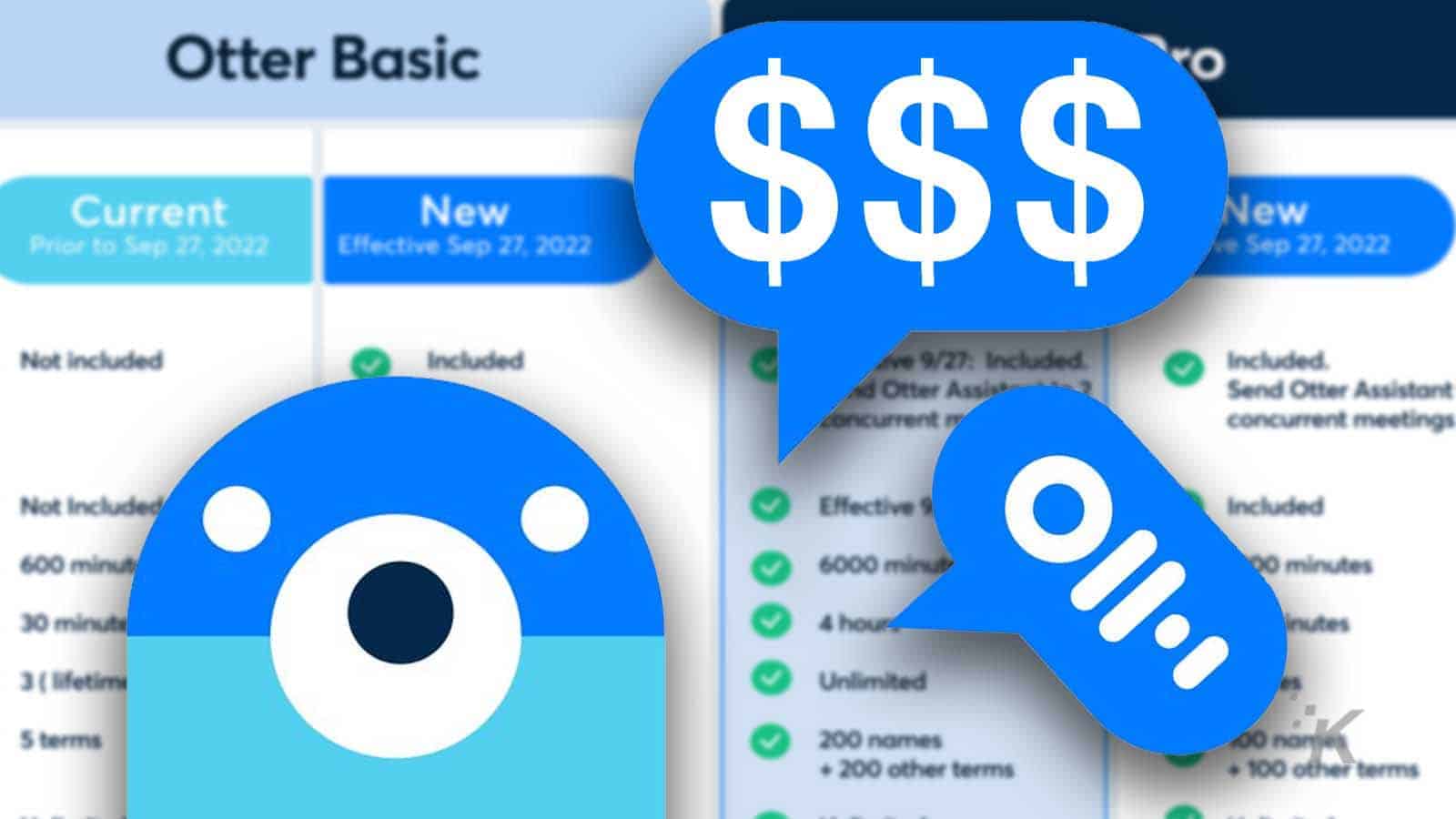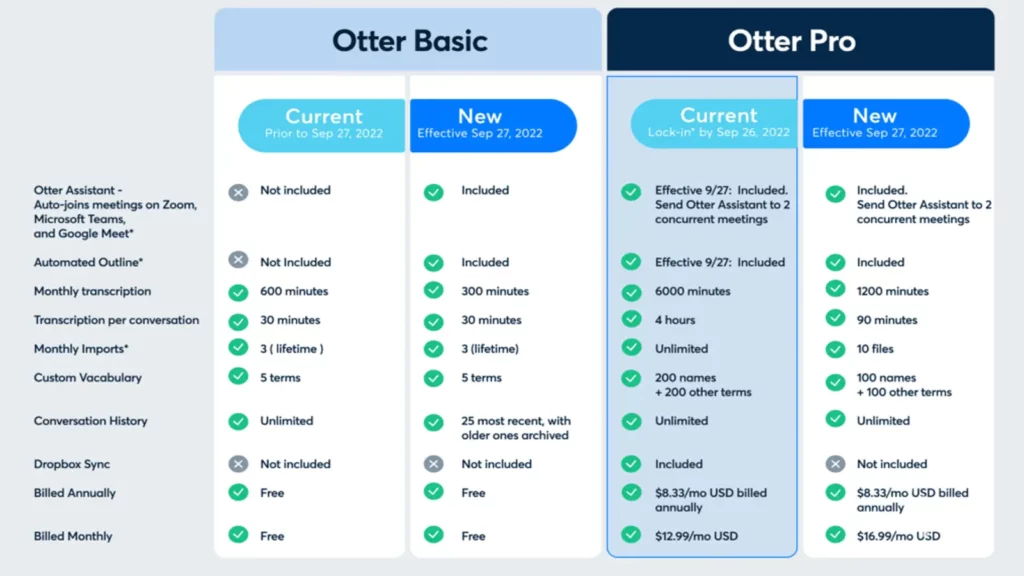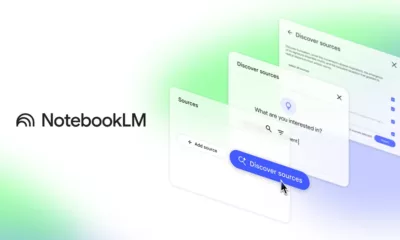Apps
It’s not me, it’s you: Why I’m breaking up with Otter.ai
Otter.ai is arguably one of the best audio transcription service out there, but its new pricing structure is terrible.

Just a heads up, if you buy something through our links, we may get a small share of the sale. It’s one of the ways we keep the lights on here. Click here for more.
Otter.ai is a tool I’ve depended upon for a long time. It’s arguably the best audio transcription service on the market.
As a journalist, I interview a lot of people. Transcribing interviews is my least favorite part of the job. It’s a tedious, time-consuming business.
Otter.ai can transform a one-hour audio recording into a (fairly accurate) text representation in a matter of minutes.
But my relationship with Otter.ai has soured. Just a few months ago, I was a vocal evangelist for the company. Now, I’m canceling my subscription.
Why? Because of a planned (and breathtakingly-stupid) change to its pricing structure.
A change for the worse
Until now, Otter.ai’s pricing was simple. You paid $12.99 each month. In return, you could transcribe up to 6,000 minutes of recordings.
Audio files could be as long as four hours, and you could transcribe as many pieces as you want, so long as you remained within your minute allowance.
From September, this will change. The service will cost $16.99 monthly. Otter.ai has slashed the amount of minutes to 1,200. The maximum recording length is 90 minutes. Oh, and you can only upload ten files per month.
Put simply, Otter.ai plans to charge users more for an objectively worse service. But wait, it gets worse.
The company has halved the number of words you can have in your custom vocabulary, from 400 (which includes 200 names and 200 custom terms) to 200 (100 a piece).
Pro users could previously synchronize their recordings and transcriptions to Dropbox. Not any more. That feature has gone out of the window.
It’s the principle
Here’s the thing: I seldom ever came close to using my full allotment of transcription minutes.
Otter.ai has undeniably worsened its service, but I likely won’t be impacted. I make a point of keeping interviews to a brisk 30 minutes. An hour, at a push.
Journalists translate difficult concepts into digestible articles. That’s why it’s important to keep interviews focused. You need to identify the salient parts of a story and distill them into a clear, quotable message.
But I also like having a cushion. If I attend a trade show, I’ll conduct countless interviews. Some will be short and brisk, while others will take place over an hours-long dinner meeting.
If I’m working on a large feature-length piece, I’ll speak to potentially dozens of people. One investigation I wrote for Wired involved dozens of sources (even if they weren’t all named). That’s just the nature of the business.
I need flexibility. The planned changes to Otter.ai are inherently inflexible. Users will have to budget against an arbitrary upload limit. If an interview crosses over the 90 minute threshold, they’ll have to split the file into separate parts, each using up one of their scarce upload slots.
Here’s the maddening thing: Otter.ai is an automated service. Unlike other industries, it isn’t battling rampant wage inflation. The biggest variable that influences the cost-per-transaction is computing power, which is unbelievably cheap.
Sure, the big three cloud providers (Microsoft, Google, and Amazon) have all recently hiked their prices in light of supply chain woes and soaring energy costs. But not by that much.
A messy break up
I really like Otter.ai. Unlike other transcription services I’ve used, it handles regional and foreign accents well. It’s fast. It’s beautifully designed.
Most importantly, it saves me time. As a freelancer, anything that lets me focus on writing (and thus, earning money) is a good thing.
But the new pricing changes are too much for me to stomach. Put simply, I resent paying more money for an objectively worse service.

This isn’t my opinion. Otter.ai made a graph detailing the changes to its paid plans. There they are. Straight from the horse’s mouth.
In fairness to Otter, I can keep my current plan for another year by subscribing to an annual plan. Existing monthly subscribers will keep their current allowances until late November.
But here’s the thing: I don’t want to pay a huge sum of money up-front. And Otter.ai isn’t the sole player in the audio transcription game.
There’s industry stalwart Rev, which charges per-minute and the transcriptions are done by humans. Other competitors include Temi and Descript.
These might be more expensive. They might even be worse. Honestly, I haven’t tried them. But they also haven’t completely soured my perception of them by hiking their prices while also crippling their product.
Deep breaths
If there’s one thing you need to know about me, it’s that I’m an incredibly petty person. I wrote a 2,000 word personal essay about a silly Facebook argument. Resentment sticks to me like flies.
In “The More You Ignore Me, The Closer I Get,” Morrissey sang: “Beware, I bear more grudges than lonely High Court judges.”
He could have been describing me. I have many hills I’ll die on, and this is one of them. It doesn’t help that Otter.ai has failed to provide any reasonable justification for its planned price changes.
At this point, an explanation is unlikely to win my affection back. Honestly, I don’t even think a total reversal would change things. As such, if anyone would like to suggest an Otter.ai alternative, feel free to drop me a Tweet.
Made it this far? Thanks. Writing this article has been a weirdly therapeutic process. To quote the food writer Giles Coren: “Anger, real steaming fucking anger can make a man verbose.”
Have any thoughts on this? Carry the discussion over to our Twitter or Facebook.
Editors’ Recommendations:
- Google Play Store to delay review posting
- What do the checkmarks mean on WhatsApp?
- DuckDuckGo now offers free email protection for everyone
- The Daily Edit app looks to make sense of the media
Just a heads up, if you buy something through our links, we may get a small share of the sale. It’s one of the ways we keep the lights on here. Click here for more.































